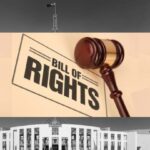The Queen Is “Completely Anathema” to Australia: CLA’s Bill Rowlings on a Republic
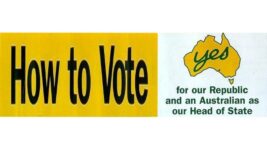
A first-time visitor on arrival to Australia, might question why Queen Elizabeth II is on the back of all the coins.
Truth be told, however, a lot of locals, when catching a glimpse of her head on the back, wonder why it’s there as well.
Technically, Elizabeth II is the Queen of Australia. And this means that formally she’s the de facto head of state, as this nation is a constitutional monarchy: a system of government where the monarchy shares limited power with a constitutionally bound government.
Section 2 of the Australian Constitution outlines that a “governor general appointed by the Queen shall be Her Majesty’s representative in the Commonwealth”.
The current governor general is David Hurley, who was sworn in on 1 July 2019, making him, in practice, the nation’s head of state.
And as part of their position, governors general hold reserve powers, which aren’t cited in the Constitution, but rather rest in the authority of the Queen.
These discretionary powers are by convention – or guided by tradition – and, therefore, their scope is uncertain and up for debate.
Reserving the right
The reserve powers of the governor general permit them to appoint a PM in the case of a hung parliament, or dismiss the PM if the lower house passes a “no confidence” motion against them, as well as potentially providing them with the ability to veto legislation already passed by both houses.
Civil Liberties Australia (CLA) president Bill Rowlings warns that the choosing a PM power could be exercised following the coming federal vote if there’s no clear Coalition or Labor majority. And he questions whether Hurley’s whim is really the best solution under these circumstances.
Indeed, back in 1975, a Coalition top heavy Senate refused to pass measures to fund government over the end of year break, unless Labor PM Gough Whitlam called an early election. The PM refused. So, then GG Sir John Kerr dismissed Whitlam and his government on 11 November.
And it was a few days shy of 24 years since the dismissal, when the entire nation voted on the question as to whether to become a republic and leave behind these formal British ties.
The 1999 national referendum was held on 6 November that year, and, to the shock of many, the proposal to become a republic was voted down.
“God save the Queen, because nothing will save the governor general”
CLA is currently raising the need for a renewed campaign to see Australia become a republic.
The rights organisation is concerned that the results of last year’s annual Ipsos poll, which puts the question of ditching the Queen to the public, were marred by a year of pandemic measures, as the polling saw 34 percent vote in favour of a republic, while 40 percent were against it.
Of course, given this is all taking place on the stolen lands of the First Nations people of this continent, any discussion of becoming a republic must engage the need for treaty-making, and concepts such as conciliation, land rights and sovereignty.
Sydney Criminal Lawyers spoke to CLA president Bill Rowlings about the loss of vitality around the proposal to see this nation become a republic, the reasons behind the failure of the 1999 referendum, and why he thinks it’s time the nation ditches the Queen.
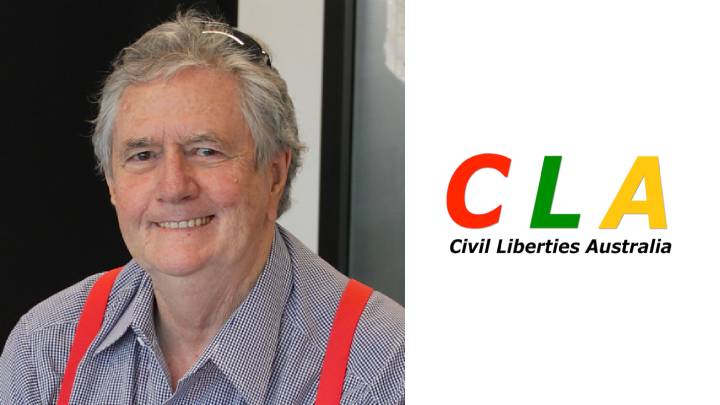
Last January’s Ipsos poll found only a third of those surveyed supported Australia becoming a republic. A quarter were undecided, and 40 percent were against the proposal.
This marks the lowest support for this issue since Ipsos and Nielsen polling began in 1979.
Mr Rowlings, why would you say the campaign for Australia to break formally with the British Monarchy lacks majority support at present?
That poll in January 2020 was at the height of the first big COVID panic. People’s minds were on other things.
When we focus as a nation on our future, people will again weigh up how out-of-date the system is that sees Australia betoken to hereditary kings and queens on the other side of the globe.
The British themselves are questioning whether they should retain the monarchy.
A YouGov poll taken in 2020 had Queen Elizabeth with a popularity rating of 69 percent in the UK, but the future King Charles’ rating was just 40 percent and the wife who will be his Queen, Camilla, had a rating in the 30s.
Affection for the English monarchy will change dramatically when the current Queen dies.
At 95, Queen Elizabeth is afforded great reverence. In Australia, the wishy-washy Charles will enjoy nowhere near the public legitimacy and respect that Queen Elizabeth commands.
Civil Liberties Australia supports the campaign to see our nation become a republic.
Why should it become completely independent from Britain? And what does it mean for these formal ties to still be in place?
There’s no concept in Australia or among Australians that we are in any way dependent on Britain.
Two centuries ago, we might have been. But, since then, the reality is that we are totally independent.
It’s time we made that reality the formal legal position and, at the same time, acknowledged our debt to the Aboriginal people, who actually owned Australia before the British gazumped it.
Rather than focusing on a declining UK, we should be co-creating our future with the rising nations of Asia, our nearer neighbours
So, what sort of system of governance does CLA recommend if Australia does move to become a republic?
CLA believes we should continue our voting democracy as it is now. As regards a ceremonial chief, before appointing an eminent person to the powerless role of head of state, the federal government should consult widely.
Preferably, we’d choose an Aboriginal title or name for our head of state, to distinguish us from other former British colonies. The states could follow suit for their current governor roles.
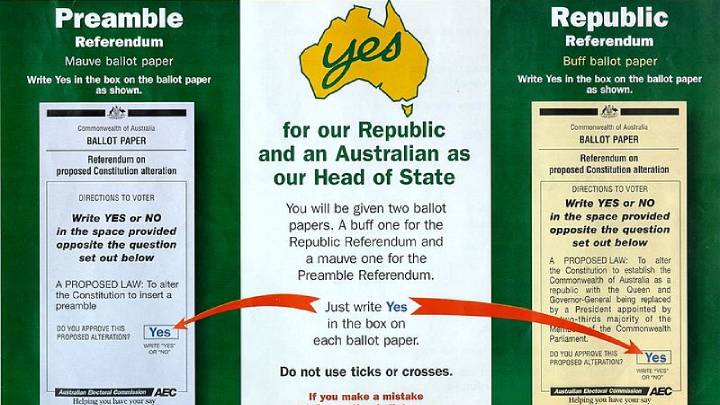
Australia held a national referendum on the question of becoming a republic in November 1999. This resulted in an overall vote of 54 percent against becoming a republic. The only jurisdiction to vote in favour was the ACT.
However, the Ipsos poll taken a month later found 57 percent in favour of a republic. What does this tell us?
The 1999 referendum on whether we should become a republic, which was lost by only about 2.5 percent in national numbers, was based on a divisive debate engineered by the then prime minister, John Howard, who deliberately tried to split support for the proposal.
It was only after the referendum that many disengaged citizens, who were forced to vote because it was compulsory, realised what it was all about, which explains the much more positive Ipsos poll a few weeks later.
Like Brexit in the UK, the Australian republic referendum suffered from people being subjected to fear myths: change itself can be scary to people who are not well versed on the issues, the facts and the truths.
The current antivax movement is a classic illustration of how social media can be engineered to create unrealistic fear.
That’s a lesson for the next time the republic question is put to the people: there needs to be a national, fact-based education program for a considerable time before the next vote is taken.
The Queen’s representative in this country is the Australian governor general. In late 1975, then governor general Sir John Kerr sacked the PM of the day, Gough Whitlam, from his position as head of state.
Does this incident hold some bearing on why our nation should break with the UK?
People forget that the current system allows the governor general to pick the nation’s prime minister.
That happened when GG Sir John Kerr effectively sacked Labor PM Gough Whitlam in 1975 and chose Liberal Malcolm Fraser to run the country.
Something similar may well happen again in 2022 in Australia. If there is no clear majority for Labor or the Coalition after the 2022 federal election, then the governor general gets to choose.
The rules say: if an election results in a parliament in which no party has a majority, the governor general may select the prime minister.
We need to have a better system than that for breaking political voting deadlocks. Even the toss of a coin would be far freer of perceived personal bias.
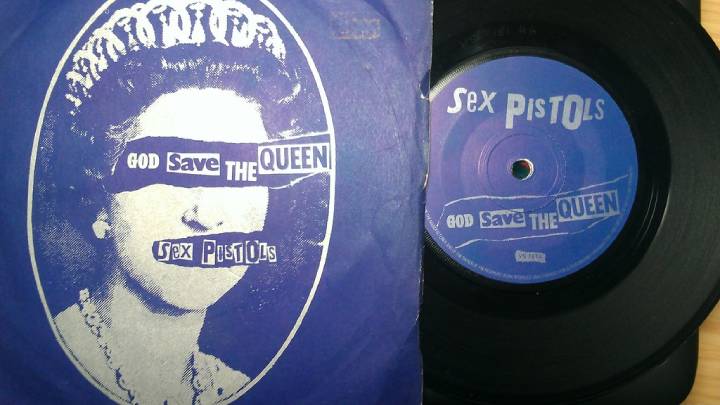
And lastly, Mr Rowlings, CLA is raising the proposal for a republic again this summer. In your understanding, what’s going to get it back on the agenda? And does the current wave of conservatism sweeping the nation hold bearing on this debate?
Basically, everyone is waiting for Queen Elizabeth to die or abdicate, which she has said she won’t do.
But the issue could suddenly become top of mind in Australia just a few months from now if the early 2022 election results in a hung parliament, and the Queen’s representative in Australia gets to pick our prime minister… again.
I suggest that no Australian wants the English Queen’s representative to pick who governs our nation.
Properly explained, conservatives are likely to support the case for cutting legal ties with the British royal family – it is only monarchists, those lovers of curtsies, pomp, ceremony and gilded carriages drawn by horses – who wish to retain the public privilege of one foreign family as top of the class above all Australians.
Australia is a classless, egalitarian, constitutionally-secular society where people who don’t believe in any particular religion are in the majority.
The Queen is the formal world head of one religion, Anglicanism, and is the product and beneficiary of a hereditary structure under a hierarchical, feudal-based system of lords and ladies, castles and palaces and tenanted estates, which is completely anathema to the Australian way of life and thinking.






